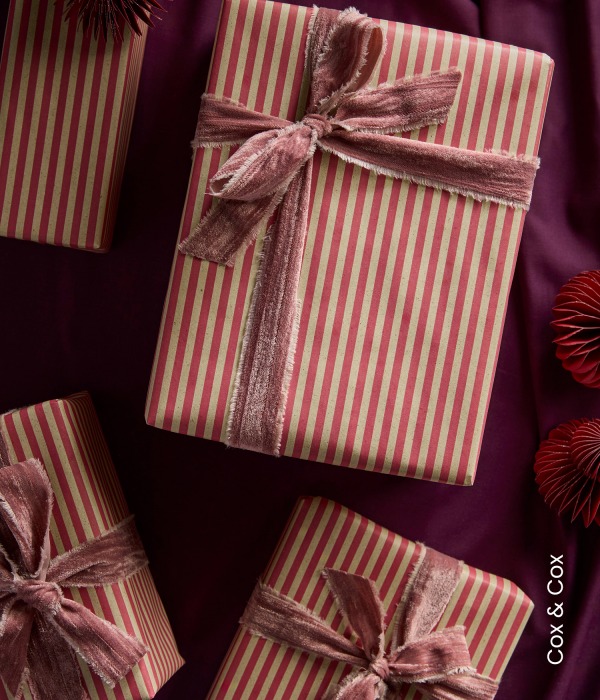Meet The Deep's Newest Baby Penguin
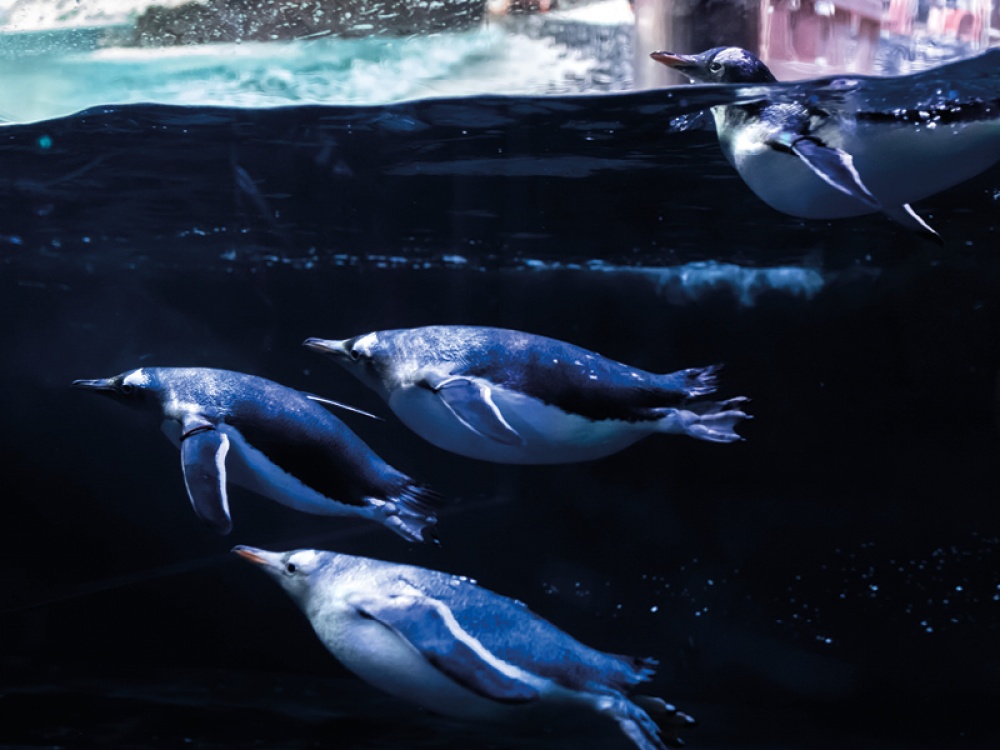
A must-visit attraction in Hull for more than 20 years, among The Deep's many marvellous inhabitants you'll find a very happy colony of Gentoo penguins
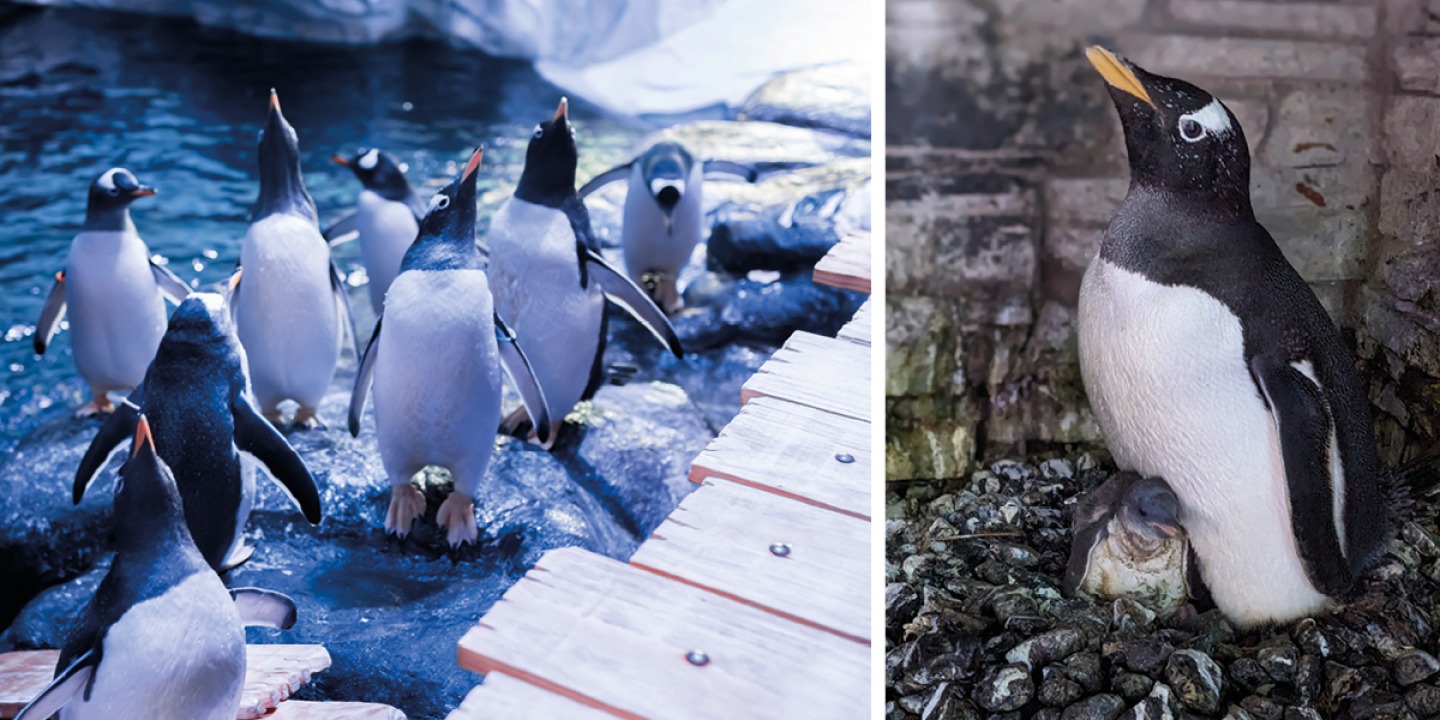
Day-to-day penguin maintenance can be a messy business and it takes a whole team of dedicated staff to keep things ticking over. ‘We start at 8.30am and we’re straight in with the penguins. It can be really dirty first thing as you can imagine,’ Emma explains. ‘We have about an hour and a half each morning when we give it a really good scrub down, and then we do two feeds a day at 11.30am and 3.30pm, which obviously people love to come and watch.’ Besides cleaning and feeding, keeping the penguins entertained is also high on the list of priorities at The Deep.
‘Other times of the day we do some enrichment with them, including playing with the water sprinkler which they really like, and sometimes we put toys in. We have live food which goes in once every week – that’s live river shrimp which they really like and it’s a lot more natural for them as they can chase it around. We do spend time making sure everyone is fine, happy and well-fed’.
In the wild, Gentoos can be found on the Antarctic Peninsula and surrounding islands, enjoying the shelter of valleys and cliffs, and rocky expanses of coastal plains. Recreating that in an enclosed space is of the utmost importance to the team at The Deep, and is no small feat. ‘We have to make sure that the enclosure is as close as possible to what it would be in the wild,’ Emma explains. ‘You need to have the right temperatures – the right water and air temperatures. The Gentoos don’t particularly live on ice and snow like some other penguins, they do sometimes but they also enjoy rocky areas. So we have an area which looks snowy and we put ice on it to make it more realistic, and then we have what we call a dry dock. It’s all rocky and they can have a natural launch area into the water and can choose where they want to be.’
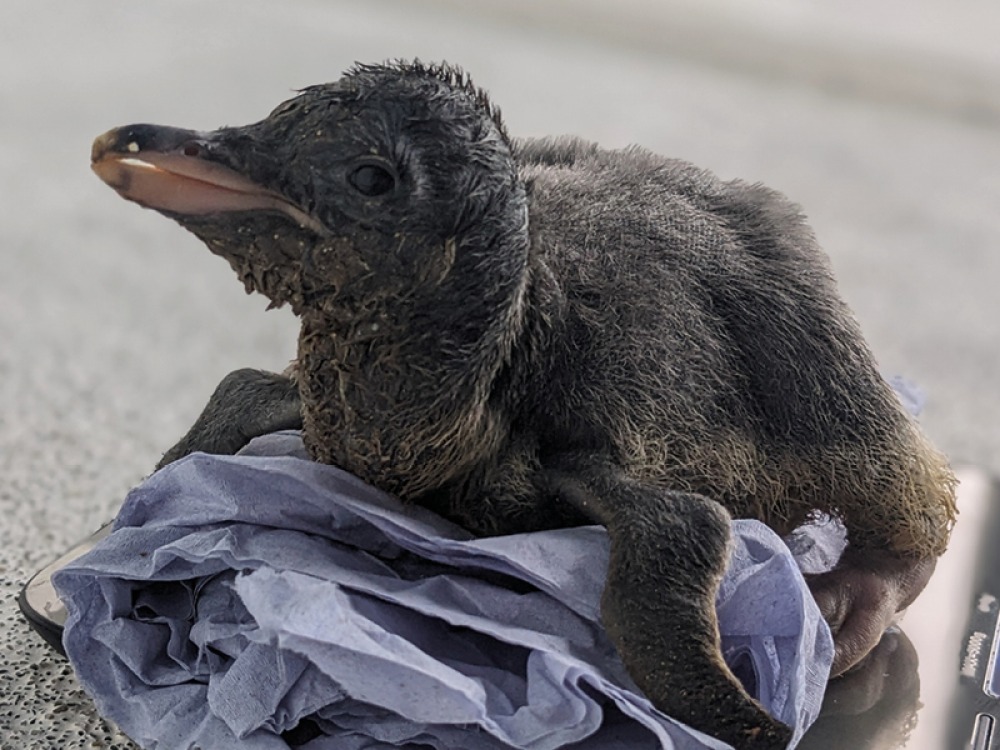
The Gentoos are a house-proud bunch, so a good selection of pebbles is also a must. ‘They also use the pebbles for their nest, so they can choose their pebbles which they do very carefully. They like to sort through the different shapes and sizes.’
No detail of the enclosure has been overlooked, and even the natural light cycle that the penguins would experience in the wild has been recreated for them. ‘Just like in the wild there are longer days or longer nights and the light cycle changes throughout the year,’ Emma explains. ‘It indicates to them when it’s time to breed, when it’s time to moult and it’s really important because otherwise they wouldn’t be very happy – they use that light cycle for their lifecycle.’
Moulting season can be a strange sight for visitors, but Emma reassures us that it’s perfectly natural. ‘That’s where they lose their feathers and grow new ones,’ says Emma. ‘They do it once every year but they look awful and really grumpy. We do have to put signage up saying this is happening and we know they look really sad and unhappy. It’s interesting because they actually swell up, the wings swell and they get really hot – you can actually feel the heat coming off them. They stop eating for a few weeks and they can sometimes just stand in the corner and look at the wall.’
But you can’t keep a good penguin down for long. ‘There’s feathers everywhere! We do have to pick them up because it’s quite a mess, and we give them to the education team to show to children when they come in. After a few weeks they get rid of their old feathers and grow new ones and they’re really happy again, and really hungry.’
Although not critically endangered, maintaining a thriving population of Gentoos in captivity is important as wild populations continue to face threats to their survival. ‘Things like pollution, disease, threats to food supply – there’s not a good space at the moment for penguins in the wild,’ Emma says. To help with this, The Deep takes part in a European breeding programme for the Gentoos. ‘We are a part of that breeding programme and do stay in touch with teams in Europe, so we will let them know if we have any chicks, or if we have any eggs, so everyone knows what’s happening all the time, and they keep in touch with us too.’
Diversifying the genetics of the European Gentoo populations by strategically breeding certain subspecies helps to keep it strong. ‘We have a subspecies of Gentoos known as Ellsworthi. Four of our penguins are that subspecies and are really special as they’re really good breeders for genetics. Our chick from five years ago was an Ellsworthi and our new chick is an Ellsworthi too, which is really good news because hopefully we’ll be able to send them across to Europe so they can start in a different colony and put their good genetics to good use.’
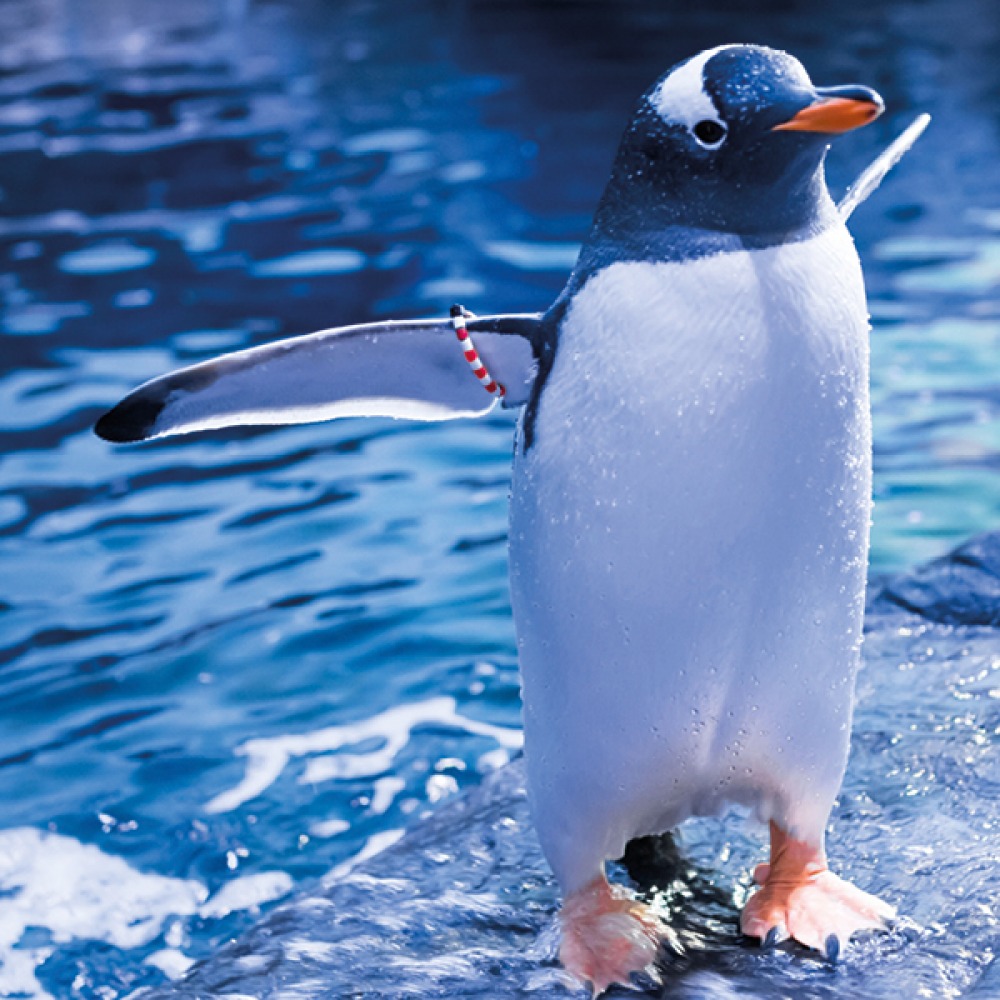
The newest chick, who was born in June, was a welcome addition to the family and parents Nessie and Stanley are pros. ‘Once a year they lay eggs, although not all eggs hatch. When they do lay eggs we mostly try to be hands-off, although we check the egg from time to time to see what’s going on. We can actually put a light through the egg and see if it’s fertilised, to see if there’s anything growing. It takes around 34 days from laying to hatching,’ Emma explains. ‘Nessie and Stanley are really good parents. They took it in turns constantly incubating the egg to keep it nice and warm, and after 34 days or so it does something called pipping. It will get a tiny hole from the chick trying to get out where it puts its beak through, and then it takes 24 hours to actually get out. We help out sometimes but generally they do it themselves.’
Penguin chicks can change rapidly in appearance over their first few months, and although the newcomer doesn’t have a name yet, it already has heaps of personality. ‘Our chick hatched on 9th June and it weighed 104g which is a good weight. The first weeks for the chicks are a crucial time because you never know if it’s going to go well or if it’s going to be healthy, but this one is doing really well. They go from a cute ball of fluff, to within three months when they’re pretty much the weight of the smaller adults,’ explains Emma. ‘We don’t know the sex of this chick yet, we will have to do a DNA test soon as that’s the only way of knowing because believe it or not there are no physical attributes to differentiate them. Once we know the sex we’ll think of a name, but at the moment it’s definitely quite feisty.’
All of the Gentoos at The Deep have buckets of character which keeps Emma and the team on their toes. ‘We’ve got a boy called Weston who just wants to be near us all the time, although we try not to give in too much,’ Emma laughs. ‘We’ve got one called Lizzie who was one of our chicks from quite a while ago and I swear she thinks she’s a person – she’s always next to us, following us around and just wants to be with us all the time. Wilbur, our older chick, is quite feisty and a little bit angry at us – and at the other penguins too.’
Unsurprisingly, the life of an aquarist is not always glamorous, but it does come with some perks. ‘Apart from looking after the penguins, I’m part of the dive team so pretty much every day we’re in the tanks, hand-feeding the sharks, the stingrays, and swordfish. That’s probably my favourite part of it.’ And the worst part? ‘Probably scrubbing penguin poop first thing in the morning, but it definitely wakes you up!’
Crucial to the survival of The Deep are its visitors. ‘When you visit The Deep, you go through a history of the world’s oceans all the way through the present day to the future, exploring different ecosystems, different habitats, and numerous exhibitions. Basically it’s all about conservation messages and education,’ Emma says. ‘It’s a really good, fun day out, but hopefully visitors learn something as well.’
For visitors hoping to get involved and help out, there are options available. ‘We do have adoption packages for most of our animals here, including our penguins,’ she says. ‘We do also ask for donations as we are a charity, and we do volunteering for students too.’
To find out more about how to get involved, visit thedeep.co.uk.

